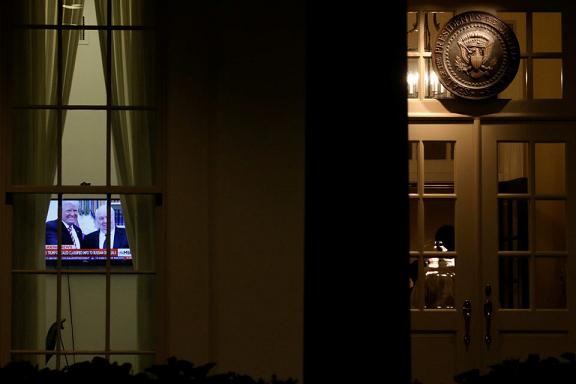by WorldTribune Staff, May 17, 2017
The continuous flow of U.S. intelligence leaks for publication by major media that appear to be targeting President Donald Trump and his administration are risking national security, current and former U.S. officials say.
The Washington Post reported on May 15 that President Donald Trump shared the details of an Islamic State (ISIS) terror plot with Russian Foreign Minister Sergei Lavrov and Amb. Sergey Kislyak during a meeting last week.

Anonymous officials told the Post they were concerned that Trump leaked “highly-classified information” obtained from an unidentified ally (which The New York Times later identified, revealing information that the president did not give the Russians).
White House National Security Adviser H.R. McMaster said on May 16: “I think national security is put at risk by this leak and leaks like this.”
Retired Air Force Col. James Waurishuk, a former intelligence officer who previously served on the National Security Council, told The Daily Caller News Foundation that “the greater damage is the leaks coming out and the leaks compounded by the stories, such as the Washington Post, for political reasons.”
The plot that the Washington Post detailed was apparently a plan by ISIS to down a commercial airliner with a laptop bomb, which is the suspected impetus for the U.S. laptop ban on flights, the Daily Caller report said.
“If this was a tactic or an operation ISIS was going to use, the first the thing that ISIS is going to do is deal with it from the standpoint that somebody in their organization leaked it to someone else who got it to the U.S.,” Waurishuk said. “That information would only be knowledgeable to certain select people within the ISIS organization.”
If there is a “mole hunt,” Waurishuk said, the reason will be because U.S. officials leaked the intelligence information to the press, not because Trump revealed it to Russia. Waurishuk added that there is no reasonable scenario in which Russia would compromise the information Trump provided by handing it over to ISIS.
“Without revealing sources and methods, it’s hard to prove how the U.S. got it, who it got it from, when it got it,” Waurishuk said, countering media assertions that the Russians would be able to determine essential information from the limited details Trump offered during last week’s meeting with Lavrov and Kislyak.
McMaster said that “at no time were any intelligence sources or methods discussed, and no military operations were disclosed that were not already known publicly.”
White House Press Secretary Sean Spicer said the leaks are “frankly dangerous.”
